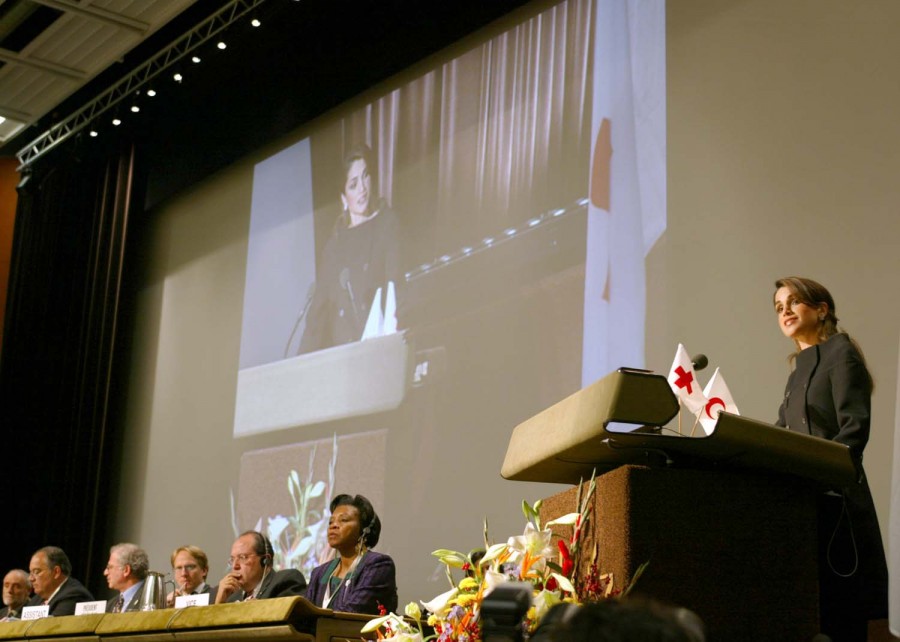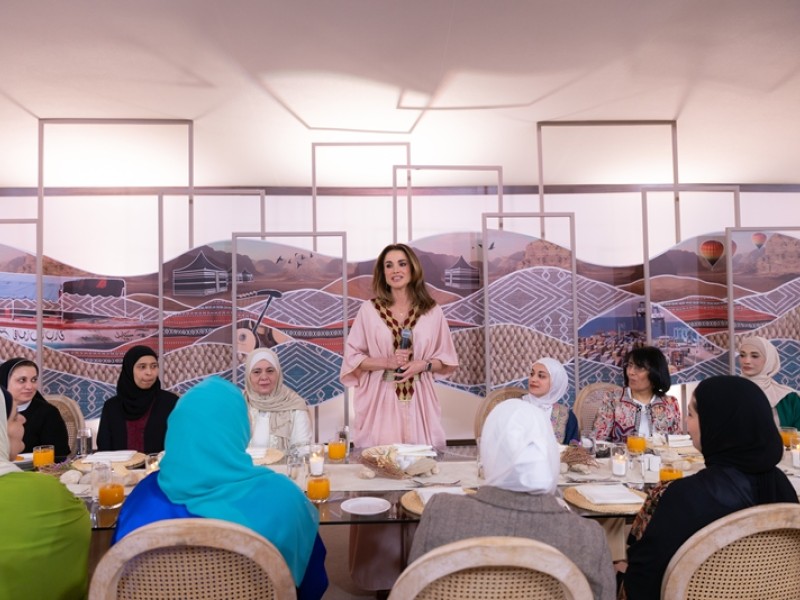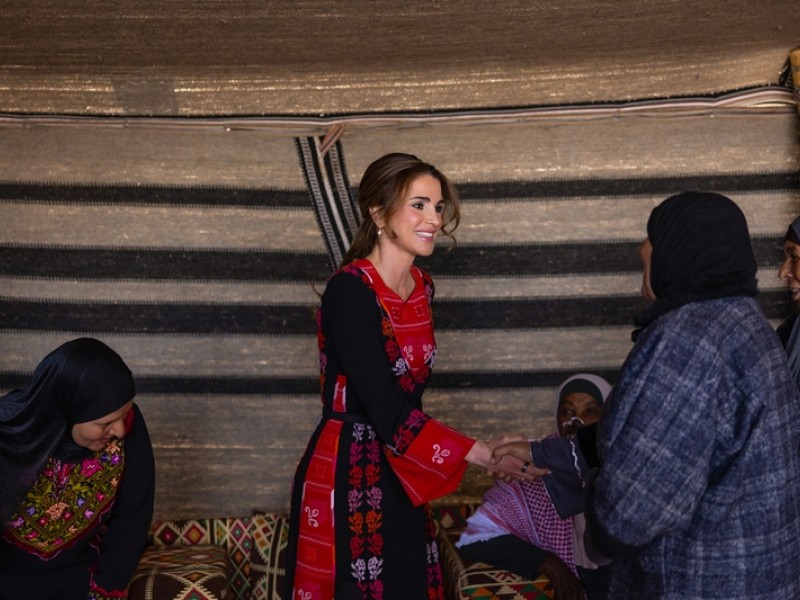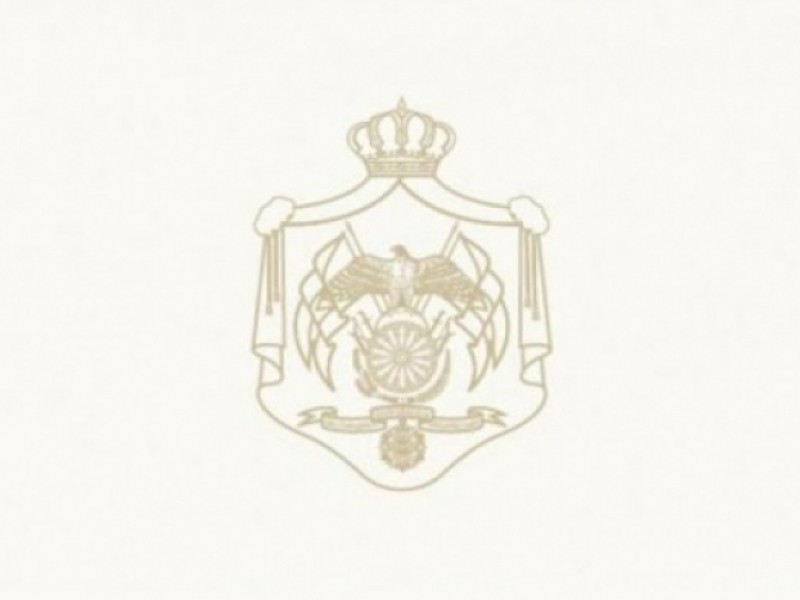Queen Rania stresses the importance of access to human dignity

(Office of Her Majesty, Press Department - Geneva) Addressing 28th International Conference of the Red Cross and the Red Crescent Societies in Geneva
Her Majesty Queen Rania Al-Abdullah stressed that access to human dignity and respect is just as important as access to education, medicine and technology.
“The right to human dignity is non-negotiable. The world’s great faiths and philosophies all draw strength from the same core belief that dignity is intrinsic to humankind as a universal birthright,” Queen Rania said at the 28th International Conference of the Red Cross and the Red Crescent Societies in Geneva.
“None of us can truly get ahead if most of us are left behind. Closing this "moral lag" will require a common conviction,” she added.
Addressing representatives of 181 Red Cross and Red Crescent National Societies attending the conference Queen Rania said “Your efforts are guided by the fundamental impulse of human empathy. Neutrality and impartiality are the currency of your realm.
You are defenders of human dignity, wherever it's at risk.” Queen Rania also inaugurated the “Women and War” exhibit which captures the suffering of women and shows images of their plight as a result of armed conflict and internal disturbances.
“Let us offer the women in these photos our promise: We see you. And we care,” Queen Rania told the international conference which takes place once every four years bringing together the 191 states which are party to the four 1949 Geneva Conventions and who form part of the International Red Cross and Red Crescent movement.
Queen Rania had launched the Arabic language version of the ICRC publication, Women Facing War, a study on the impact of armed conflict on women and opened an exhibition of photographs on women and war earlier in Amman and Beirut.
The study, which is meant to motivate the public to search for means to prevent and cure the suffering of women and female children, focuses on challenges faced by women in conflict situations, such as personal safety, sexual violence, displacement and access to health care, food and shelter.
In her remarks at the Dec. 2-6 International Conference of the Red Cross and the Red Crescent Societies, held under the theme 'Protecting Human dignity',Queen Rania underlined the need for a universal code of human values and ethics.
“In an age when borders no longer define the limits of culture and commerce, nor contain the enormous costs of human suffering we find our global moral conscience lagging behind our global markets.”
She added that in recent years, there’s been an alarming erosion of humanitarian space which needed to be safeguarded in both physical and moral terms, citing violence against aid workers, such as the bombing of the Red Cross offices in Baghdad, which shocked and saddened the civilized world.
“We have to make room for humanitarian space in our hearts - and awaken the part of ourselves that aches at the sight of another in pain.
We cannot afford to ration compassion, reject the unfamiliar, or save our sympathy only for people who look or sound like us,” Queen Rania noted.
In his speech at the conference, ICRC President Jakob Kellenberger said the ‘Women Facing War’ study confirms that if women continue to suffer in situations of armed conflict, it is not from any shortcomings in the legal regime protecting them, but rather because these laws are not implemented and respected.
“The challenge lies in ensuring respect for and implementation of the existing obligations. All those present today must take up this challenge,” Mr. Kellenberger said.
Queen Rania, the current president of the Arab Women's Summit, has been outspoken on the need for efforts targeted towards securing the rights of women as well as programs aimed at enhancing their role in the development process reaffirming the need to activate laws and international conventions to improve the living standards of war victims.
Jordan was the first Arab country to create a national commission for the implementation of International Humanitarian Law to give advice to the concerned authorities in order to harmonize the national law with the international treaties and conventions.
Jordan was also the first Arab country to ratify the International Criminal Court Treaty, and among the first Arab countries to sign the Ottawa Treaty, banning the use of anti-personnel landmines.
The ICRC, an independent, private, and non-political institution, acts as a neutral intermediary between the parties concerned in war, civil war or internal disturbance, endeavoring to ensure that civilian and military victims of the conflict are afforded protection and assistance and that certain humanitarian rules are observed.
مواضيع مختارة
موقع جلالة الملكة رانيا العبدالله الرسمي
هذا الموقع الإلكتروني لا يدعم متصفحات الإنترنت القديمة. الرجاء تحديث متصفح الإنترنت إلى نسخة أحدث من إنترنت إكسبلورر 9
متصفح الإنترنت الذي تستخدمه قديم. لتحسين مستوى الأمان عند تصفح مواقع الإنترنت و مشاهدتها بالشكل الصحيح و بفعالية افضل قم بتحديث متصفح الإنترنت الخاص بك



